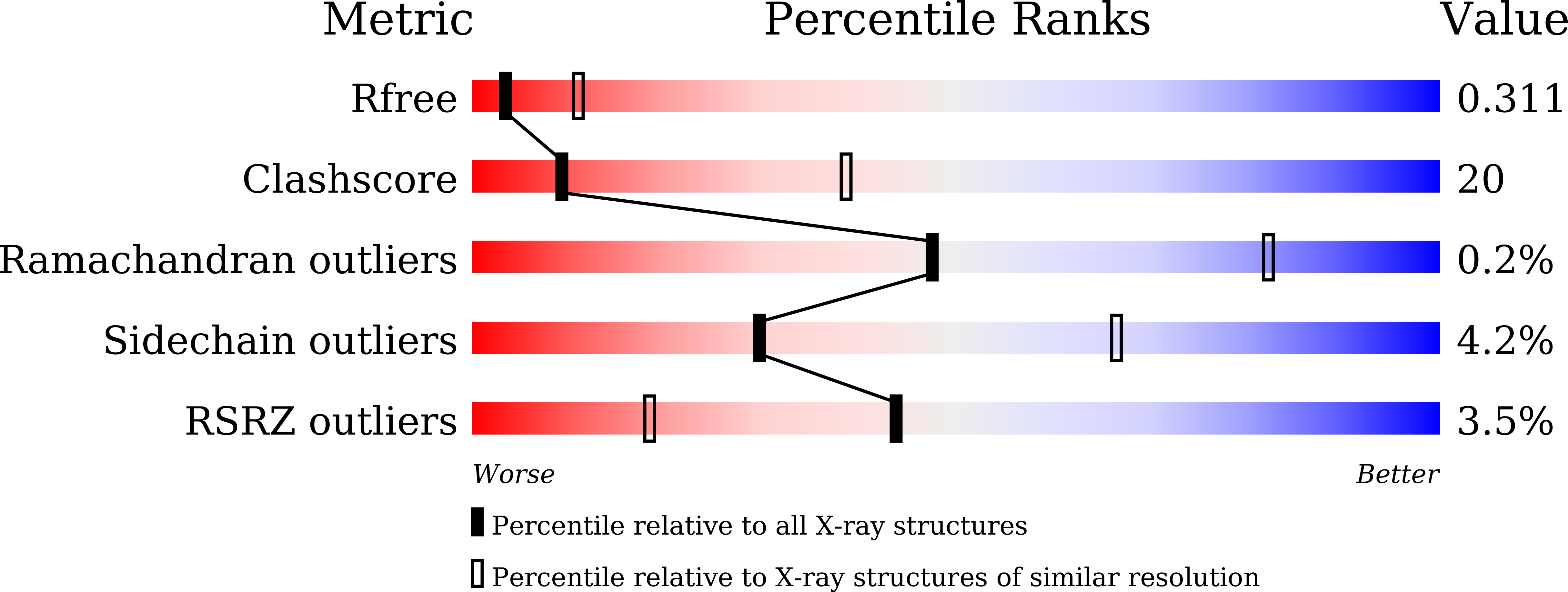
Deposition Date
2021-06-22
Release Date
2022-06-22
Last Version Date
2024-11-13
Entry Detail
Biological Source:
Source Organism(s):
Mus musculus (Taxon ID: 10090)
Expression System(s):
Method Details:
Experimental Method:
Resolution:
3.00 Å
R-Value Free:
0.31
R-Value Work:
0.22
R-Value Observed:
0.22
Space Group:
P 21 21 21


